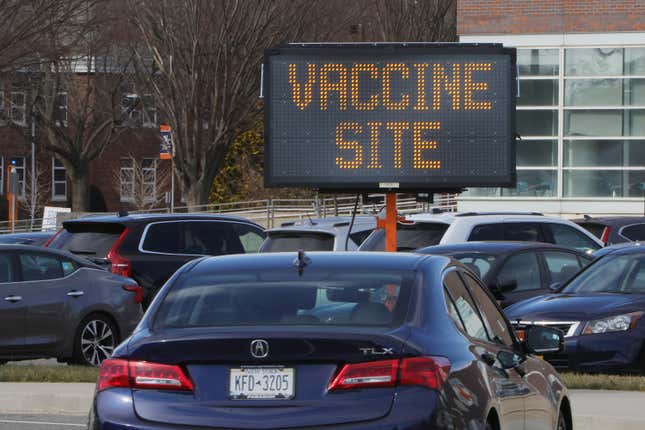
As we approach one full year of dealing with COVID, we’ve seen the pandemic exacerbate existing inequities and create new ones. As the vaccine for the virus continues to be distributed throughout the country, early data shows that Black people have been vaccinated at a much lower rate than white people.
According to Kaiser Health News, the initial rollout of the vaccine has predominantly gone to healthcare workers, with only 3 percent of the nation’s population having been vaccinated so far. Analysis of the 16 states that measure data by race reveals a noticeable disparity, with white people so far having been vaccinated at a rate that is two to three times higher than Black people.
This disparity is incredibly apparent in Pennsylvania, where almost 120,000 white people have received the vaccine compared to the less than 4,000 Black people. Data from North Carolina shows that 81 percent of those who have been vaccinated in the state so far are white, with Black people making up only 8 percent of vaccinations. In Tennessee’s predominately Black Shelby County, twice as many white people have been vaccinated as Black.
While this is early data, and supply of the vaccine is limited, this is still a concerning sign. Black people have contracted coronavirus at a disproportionate rate, with the virus becoming the third leading cause of death for Black people last year. “My concern now is if we don’t vaccinate the population that’s highest-risk, we’re going to see even more disproportional deaths in Black and brown communities,” Dr. Fola May told KHN.
From KHN:
If the rollout were reaching people of all races equally, the shares of people vaccinated whose race is known should loosely align with the demographics of health care workers. But in every state, Black Americans were significantly underrepresented among people vaccinated so far.
Access issues and mistrust rooted in structural racism appear to be the major factors leaving Black health care workers behind in the quest to vaccinate the nation. The unbalanced uptake among what might seem like a relatively easy-to-vaccinate workforce doesn’t bode well for the rest of the country’s dispersed population.
There have been concerns about distrust in the Black community around the vaccine given both historical atrocities such as the Tuskegee Experiment and the general disparities that exist when it comes to Black people and healthcare. Those concerns may have played some a role in the vaccination disparities, with over half of Black Americans saying they would wait and see on the vaccine’s effectiveness compared to only 36 percent of white Americans. As KHN notes, access issues may also be preventing people from receiving the vaccine.
Dr. Taison Bell, a Black physician at the University of Virginia Health System, told KHN that he was shocked when he learned that the hospital’s janitorial staff didn’t have access to hospital email and thus didn’t receive the vaccine registration information the hospital sent out.
“That’s what structural racism looks like,” Dr. Georges Benjamin, executive director of the American Public Health Association, told KHN. “Those groups were seen and not heard — nobody thought about it.”
Eric Swenson, a spokesman for UVA Health, told KHN that the janitorial staff was vaccinated and the hospital has taken steps to keep those without hospital email informed about the vaccination process.
While there is hope that President-elect Joe Biden’s pledge to have 100 million vaccinations occur within his first 100 days, there are also concerns that speeding up the number of doses won’t necessarily address the existing inequities.
“We are missing the boat on equity,” Dr. Marcus Plescia, chief medical officer at the Association of State and Territorial Health Officials, told KHN. “If we don’t step back and address that, it’s going to get worse.”

